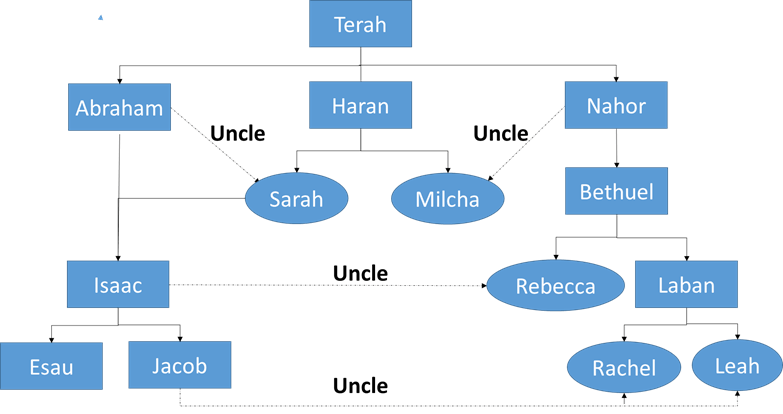In the procession of births of the sons of Jacob indicated in Genesis 29 and 30, we come across an extraordinary interlude in which Reuben brings mandrakes for his mother, Leah; Rachel then barters with Leah, offering her husband Jacob for that night in exchange for the mandrakes (Gen. 30:13-16).
This is the first of three instances where Reuben, the first-born, demonstrates his concern about the fertility of his father’s wives and concubines, or rather, about the number of tribes of Israel that are born. (See https://thealeph.info/uncategorized/why-did-reuben-sleep-with-his-fathers-concubine-bilhah/). Why did Reuben take it upon himself to bring mandrakes to his mother and why is ‘the mandrake incident’ mentioned in the middle of the sequence of births formulating the tribes of the Children of Israel? We suspect that this incident signals that something special is going to happen. The mandrake incident occurs after the birth of Asher, who is the 8th son and born during the wheat harvest.
The mandrake is a very powerful plant. It is said that the root has human shape and anyone who uproots the mandrake from the ground will die. Ancient lore has it that the mandrake fell into Reuben’s hands via his donkey which, struggling to get free of the bush he was tied to, uprooted the mandrake and consequently died.
The mandrake brings male and female together through the aroma it produces. In the love songs of Solomon it reads: The mandrakes give aroma, and at our gates are all manner of pleasant fruits, new and old, which I have laid up for thee, O my beloved (Songs of Songs 7:14) [1]. It is for this reason that the verse Lecha Dodi ‘Come my beloved’ in the Song of Songs, is sung during the Friday evening service to welcome in the Sabbath and is likened to welcoming a bride, or heaven coming to earth on the Sabbath eve.
The Hebrew word for mandrake is dodeim דודאים spelled: daled-vav-daled-aleph-yod-mem with a gematrical value of 4+6+4+1+10+40=65. Sixty-five is 5 x 13 where 5 is the number of the Crystal of Creation and 13 is the gematrical value for LOVE אהבה spelled aleph-heh-beth-heh = 1+5+2+5=13.
The word for mandrake is derived from the root word, dod, דוד spelled daled-vav-daled with a gematrical value of 4+6+4=14. Dod means both ‘uncle’ and ‘beloved’ and is also the spelling for the name ‘David.’[2] [3] As we know, the vav symbolizes a hook. Just as the letter aleph comprises two yods connected by a vav on either side representing the binding of God in Heaven and God on Earth, (see Chapter 1), soin this case the vav is binding the two daleds on either side, meaning the binding of male and female in the phenomenal world, represented by the number 4. This force that binds the two together is the force of love. It is for this reason that the Song of Songs is read during the Sabbath evening service, and the welcoming of the Sabbath is likened to the welcoming of a bride, binding Heaven and Earth and male and female forces together.
Similarly, considering dod as the Hebrew word for uncle, if we examine the family tree of the three patriarchs we see that they were in fact uncles to their wives [4] and that the union of male and female was indeed ‘the beloved’. The union of the three patriarchs, Abraham, Isaac and Jacob to their wives Sarah, Rebecca, Rachel and Leah was a union of love. The birth of the Hebrew race was founded on LOVE.

[1] The word ‘my beloved’, dodi and ‘mandrake’ dodeim, are from the same word root.
[2] In Hebrew, the vav ו can either be pronounced as an ‘o’ or ‘oo’ sound or as a ‘v’ sound.
[3] It is for this reason there are 14 Stations of the Cross along the Via Dolorosa in Jerusalem because it is interpreted from Isaiah 11:1 that the Messiah will be a descendent of King David.
[4] For this reason, both Abraham and Isaac escape perjury when allowing their wives to become concubines to Abimelech, claiming that they were their sisters, which was a common reference relating not only to an actual sister but also to close relatives (Gen. 20:9; 26:8).